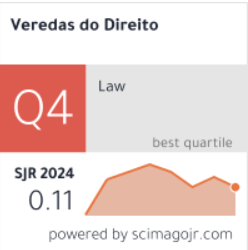FACTORS INFlUENCING THE INTENTION TO APPLY CLOUD BASED ACCOUNTING IN ORGANIZATIONS – RESEARCH AT ANIMAL FEED PROCESSING ENTERPRISES IN HANOI
DOI:
https://doi.org/10.18623/rvd.v22.n4.3638Keywords:
Animal Feed Processing Enterprise, CBA, Digital EraAbstract
The use of Cloud-Based Accounting - CBA platforms is becoming a trend that is unavoidable in the context of the intense global digital transformation that is occurring in order to innovate business accounting and financial management systems. The use of CBA improves management effectiveness and the caliber of accounting data in addition to automating accounting procedures and facilitating real-time connections and sharing of financial data. The purpose of this study was to determine and assess the variables influencing the degree of CBA use in Hanoi's animal feed processing businesses. The theoretical model based on the UTAUT framework was tested using quantitative research techniques, such as multiple linear regression analysis and exploratory factor analysis. The study's findings indicate that the intention to use cloud computing accounting is influenced by five factors: (1) Performance Expectancy; (2) Effort Expectancy; (3) Social Influence; (4) Facilitating Conditions; and (5) Organizational Capability. Based on this, the study makes some managerial recommendations to encourage the use of CBA in manufacturing businesses, particularly those that process animal feed, in order to improve the efficiency of financial management and the caliber of accounting reports in the digital era.
References
1. Al-Htaybat, K., & von Alberti-Alhtaybat, L. (2017). Big Data and Corporate Reporting: Impacts and Paradoxes. Accounting, Auditing & Accountability Journal.
2. Awa, H. O., Ukoha, O., & Igwe, S. R. (2022). Cloud Computing Adoption and Firm Performance: A Resource-Based View Perspective. Information Systems Frontiers.
3. Dai, J., & Vasarhelyi, M. A. (2017). Toward Blockchain-Based Accounting and Assurance. Journal of Information Systems.
4. Hamdy, A. et al. (2025). Digital Transformation and the Quality of Accounting Information Systems (MDPI – open access).
5. Hamzah, A. et al. (2023). Factors Affecting Cloud Accounting Adoption in SMEs.
6. Khayer, A., Talukder, M. S., Bao, Y., & Hossain, M. N. (2020). Cloud computing adoption and its impact on SMEs’ performance for cloud supported operations: A dual-stage analytical approach. Technology in Society, 60, 101225.
7. Moll, Jodie & Yigitbasioglu, Ogan, 2019. "The role of internet-related technologies in shaping the work of accountants: New directions for accounting research," The British Accounting Review, Elsevier, vol. 51(6).
8. Nguyen Phu, G. et al. (2025), The impact of cloud computing technology on cloud accounting adoption and financial management of businesses. Humanit Soc Sci Commun 12, 851 (2025). https://doi.org/10.1057/s41599-025-05190-3
9. Olga Fullana, Javier Ruiz (2020), Accounting Information Systems in the Blockchain Era, https://ssrn.com/abstract=3517142
10. Rymarczyk J (2020), Technologies, business models and processes in the era of Industry 4.0: The conceptual framework of an ecosystem. J. Econ. Manag. 41(3):33–52.
11. Venkatesh, V. et al. (2003). User Acceptance of Information Technology: Toward a Unified View. MISQ.
Downloads
Published
How to Cite
Issue
Section
License
I (we) submit this article which is original and unpublished, of my (our) own authorship, to the evaluation of the Veredas do Direito Journal, and agree that the related copyrights will become exclusive property of the Journal, being prohibited any partial or total copy in any other part or other printed or online communication vehicle dissociated from the Veredas do Direito Journal, without the necessary and prior authorization that should be requested in writing to Editor in Chief. I (we) also declare that there is no conflict of interest between the articles theme, the author (s) and enterprises, institutions or individuals.
I (we) recognize that the Veredas do Direito Journal is licensed under a CREATIVE COMMONS LICENSE.
Licença Creative Commons Attribution 3.0







